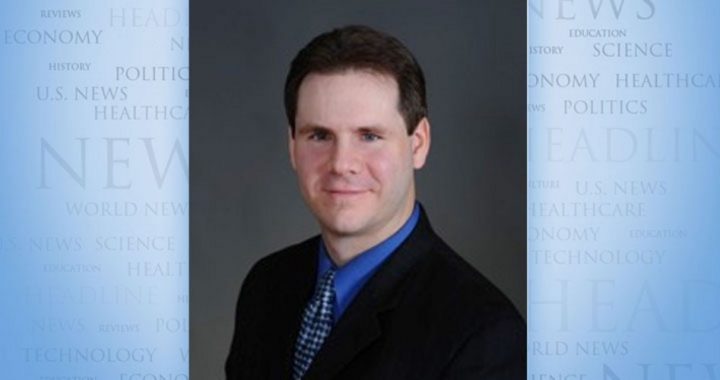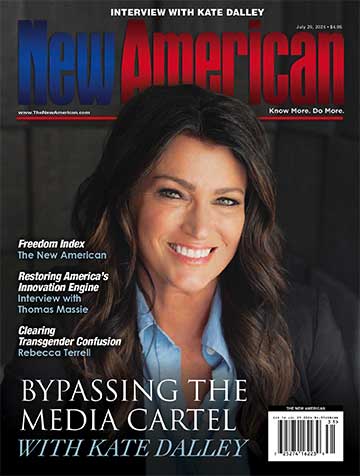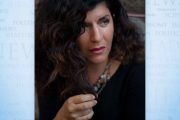
“Must We All Be Always Tolerant?” asks commentator Hugh Fitzgerald. Writing at Jihad Watch, what inspired his question was the reaction of British lawmaker David Amess’s family to his October 15 murder.
Amess, 69, was stabbed 17 times by a Somali Muslim while meeting with constituents in a Methodist church in Leigh-on-Sea in southern England, in what authorities consider a terrorist incident. In response to this, Amess’s family said in a statement released via London police, “Whatever one’s race, religious or political beliefs, be tolerant and try to understand,” reports Reuters.
Lamenting this while also taking care to be gentle with those in mourning, Fitzgerald wrote yesterday that he wished the family hadn’t issued the statement. The problem, he explained, is that the sentiment “expresses a belief commonly shared, part of the zeitgeist in the advanced Western world, the spirit of a forced ‘tolerance’ that tries to suppress all natural feeling or human understanding.”
In making their statement, the family might have been alluding to the jihadist spirit that apparently motivated Amess’s killer, Ali Harbi Ali, or to anti-Muslim sentiment his act might evoke — or both.
Whatever the case, it may not be hard figuring out what Ali found so intolerable about Amess, a Conservative party politician who’d been a member of the British parliament since 1983. Fitzgerald points out that Amess was a strong and vocal supporter of the U.K. Jewish community, of Israel, and of Iranian dissidents in Europe, all positions that could raise jihadist ire.
As for Ali, don’t think he was some downtrodden “refugee” enduring privation. Much as with Osama bin Laden, whose net worth reportedly was $100 million, Ali “lacked for little, thanks to his father, Harbi Ali Kullane,” explains Fitzgerald.
“Ali Kullane had been an adviser to the Somali prime minister, and was likely given ample government funds which would come in handy when he later moved to England and acquired an expensive property in old Londinium,” he elaborated. “Harbi Ali Kullane bought a property on a street where the houses sell for at least two million pounds.”
Clearly, Ali didn’t absorb the “woke values” that so often attend the upper-crust European lifestyle he enjoyed.
Speaking of “values,” “What if one’s religious beliefs make it impossible to be ‘tolerant’ of others?” Fitzgerald rhetorically asks. “Are we to tolerate those who will always be intolerant, sometimes murderously so, toward us?” he continues. “Muslims are taught that they are the ‘best of peoples’ (3:110), while non-Muslims are ‘the most vile of created beings’ (98:6).”
Fitzgerald provides many other similar Koranic sentiments. While you can read them here, however, and agree or disagree, there’s a larger point: Regarding “tolerance,” people may tout it or doubt it, but not one in 50 understands it.
This is nothing new, either, as evidenced by how famed archbishop Fulton J. Sheen had to address the matter way back in 1931. As he quite poetically wrote while still a monsignor:
America, it is said, is suffering from intolerance — it is not. It is suffering from tolerance. Tolerance of right and wrong, truth and error, virtue and evil, Christ and chaos. Our country is not nearly so overrun with the bigoted as it is overrun with the broadminded.
… Tolerance applies to the erring, intolerance to the error.… Architects are as intolerant about sand as foundations for skyscrapers as doctors are intolerant about germs in the laboratory.
Tolerance does not apply to truth or principles. About these things we must be intolerant, and for this kind of intolerance, so much needed to rouse us from sentimental gush, I make a plea. Intolerance of this kind is the foundation of all stability.
What Tolerance Really Is
Tolerance always implies a perceived negative. For example, you wouldn’t have to tolerate a delectable meal or a beautiful car; you relish those things. But you would have to tolerate a stubborn cold, a painful rash, or foul weather.
So for those who’d, let’s say, call Fitzgerald a bigot for inveighing against Islam and say that they, in contrast, are “tolerant” of Muslims, understand this:
You’re implying that you consider Muslims a negative.
If you don’t — if instead you like them or just view them neutrally — tolerance doesn’t enter the equation.
When Tolerance is Virtuous and When It’s Vice
Of course, not everything we perceive as negative actually is so. We may dislike broccoli, but tolerate it in order to avoid offending a host or for health reasons. In such cases, when the perceived negative is not objectively negative and there are good reasons to put up with it, tolerance can be a great exercise of virtue.
It also can be virtuous when dealing with an objective negative, such as unjust imprisonment or a terminal illness, that you cannot remedy. Soldiering on nobly in such situations often builds great character and provides inspiration for others.
But what of when at issue is an objective negative that can be remedied? The only virtue then lies in wiping the negative out.
For example, allowing vice (objectively bad moral habits) to reign in society and become the stuff of curricula — to the point where children are told they can switch sexes — because someone branded it a “lifestyle choice” is in a sense vice itself.
Really, we can take a leaf out of the Left’s book here. While liberals once boasted of their tolerance, how much do they actually abide what they consider negative — for example, conservatism, Trump support, Americanism, and Western culture?
The question answers itself and should be a lesson for all.



